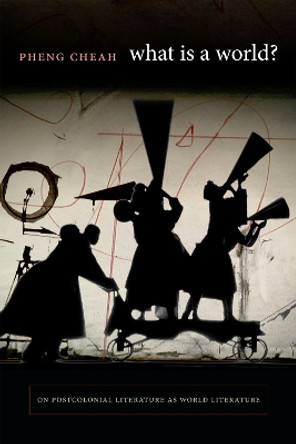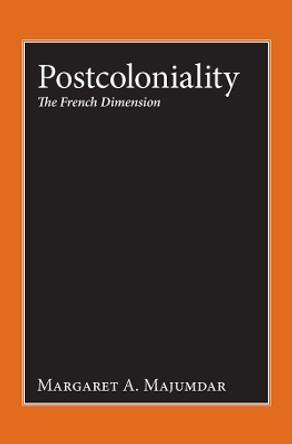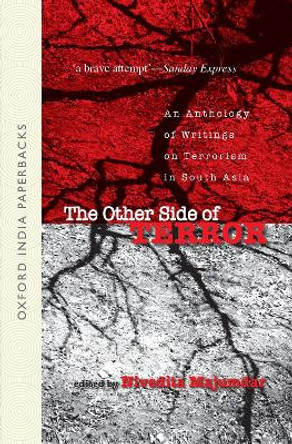Description
Radical universalism vs postcolonial theory
About the Author
Nivedita Majumdar is associate professor of English at John Jay College, City University of New York. She has published widely on Anglophone literature, gender, and cultural theory. Her book The Other Side of Terror was published by Oxford University Press, 2009.
Reviews
Praise for The Other Side of Terror An Anthology of Writings on Terrorism in South Asia:
"A brave attempt to locate political violence in a milieu that neocons are averse to. It succeeds in raising questions that the establishment seeks to drown in its shrill rhetoric and shattering sounds of carpet-bombing." * New Indian Express *
Praise for The Other Side of Terror An Anthology of Writings on Terrorism in South Asia:
"The anthology aims to give the subject of terror a genealogy other than the one ascribed to it by the Bush doctrine, to examine its impacts in places other than the United States of the 21st century, but most importantly to allow us to engage with the phenomenon in the most complex, situated, historicized, and empathetic way possible. The attempt to canvas literature to make these arguments is quite unique." -- Aparna Sundar * Against The Current *
Praise for The Other Side of Terror An Anthology of Writings on Terrorism in South Asia:
"It privileges literary texts as forms of media where imaginative and empathetic dialogues can be forged with the histories of occluded and supposedly silent others." -- Amit R Baishya * North East Review *
Praise for The Other Side of Terror An Anthology of Writings on Terrorism in South Asia:
"An attempt to represent a holistic view that is contrary to the new global understanding of terrorism with rich philosophical insights [and] an innovative way to counter the idea of methodological universalism in understanding social reality." -- Bhagat Oinam * South Asian Popular Culture *
A bracing critique of postcolonial orthodoxy from a standpoint decisively to the left of it. Some books are enjoyable but not necessary; this one is both. -- Terry Eagleton
A bracing critique of postcolonial orthodoxy from a standpoint decisively to the left of it. Some books are enjoyable but not necessary; this one is both. -- Terry Eagleton
More than three decades after its intellectual and institutional beginnings, postcolonial theory must still learn to read-and how not to read-postcolonial literature. So argues, convincingly, Nivedita Majumdar in this careful and militantly progressive new work of postcolonial literary criticism and interpretation. A theory launched by high poststructuralism and a then stylish postmodernism's cult of difference and allergy to universals trips over literary narratives that, on the contrary, have everything to do with the concrete universals inseparable from struggles against gender and class oppression. Whether, as Majumdar carefully demonstrates, these narratives (here mostly Anglo- and, refreshingly, non-Anglo-Indian) ultimately prove to be truthful reflections of such struggles and their underlying social realities or not, their genuinely critical reading presupposes a radical universalism at odds with many of the originating texts of postcolonial theory-a theory that Majumdar here goes a long way towards rectifying and redeeming. -- Neil Larsen
In crisp, honest, prose, Majumdar treats the academy's postcolonial royalty with remarkable candor in a series of sharp, often acerbic, close readings. We too often call dissent what are really acts of accommodation, she argues, and ignore the real-world fiction of the periphery - the work, say, of Sharatchandra Chattopadhyay, Mahasweta Devi, and A. Sivanandan - who take their stand not with a classless "difference" but with radical universalism. A compelling case that the darling texts of the Western awards industry (the novels of Ondaatje, Lahiri, and Neel Mukherjee) reflect troubling neo-Orientalist or neoliberal ideas. -- Timothy Brennan
In this vigorously discriminating and deeply engaged book, Professor Majumdar seeks to restore to Postcolonial Studies its pristine political purpose. Going beyond or behind the pervasive complicities of the Postcolonial with Cultural Studies, World Literature and the New Left, she argues for a more meaningful resistance based on the older certitudes of class struggle. She proposes an alternative Postcolonial canon in which the little-known Sharatchandra and Sivanandan are put forward as being more particular and therefore more universal than liberal global figures such as Tagore and Ondaatje. This return to the local, in her affirmation, is a more radical and universalist new turn. -- Harish Trivedi, University of Delhi
Book Information
ISBN 9781788737463
Author Nivedita Majumdar
Format Paperback
Page Count 240
Imprint Verso Books
Publisher Verso Books
Weight(grams) 279g
Dimensions(mm) 234mm * 153mm * 15mm









